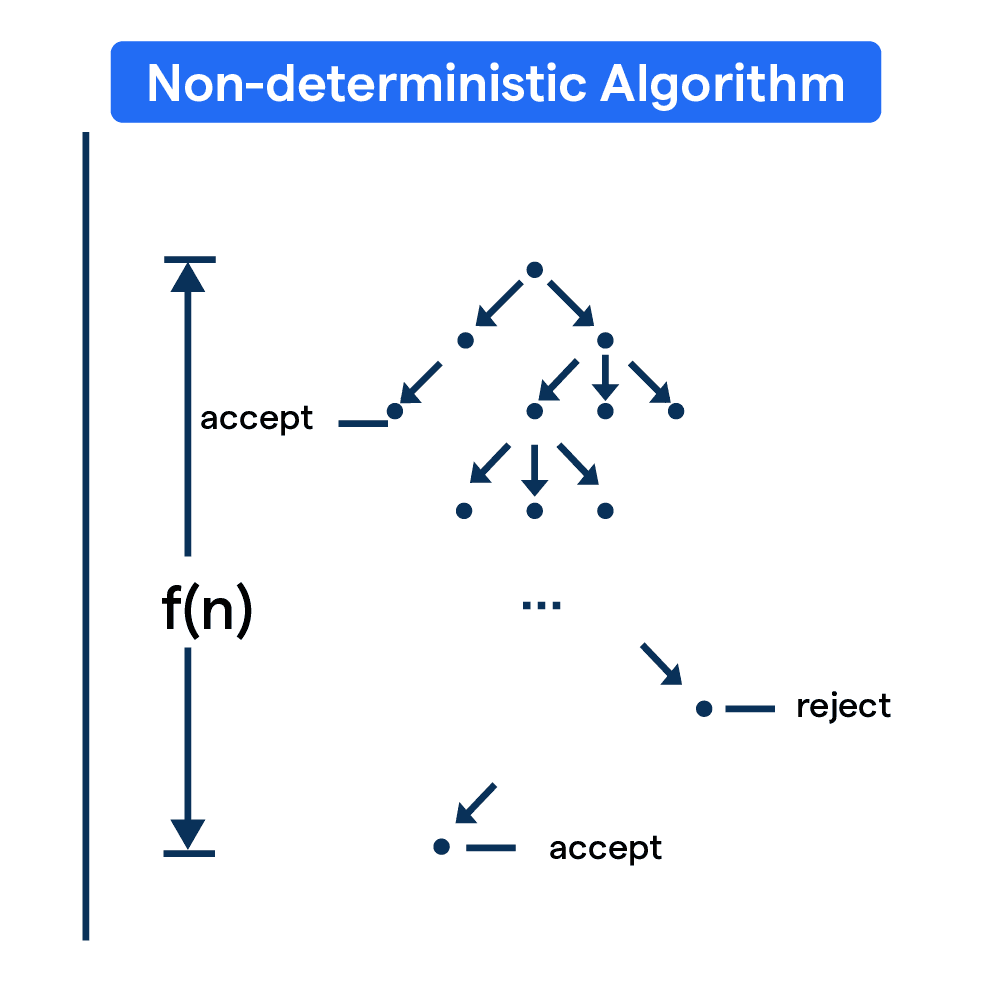What are Non-Deterministic Algorithms?
Non-deterministic algorithms are computational methods that, for a given input, do not always produce the same output.
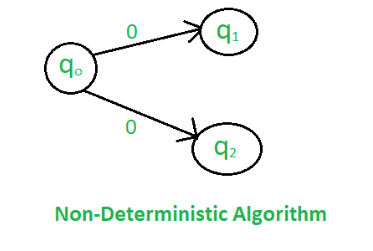
They incorporate an element of randomness, which allows them to provide multiple potential outcomes, enhancing their capability to explore a broad solution space.
Who Uses Non-Deterministic Algorithms?
Primarily, computer scientists, programmers, data analysts, and researchers use non-deterministic algorithms.
These professionals leverage the randomness provided by these algorithms to explore various solutions, especially when working on complex problems where reaching an optimal solution is difficult.
Where are Non-Deterministic Algorithms Applied?
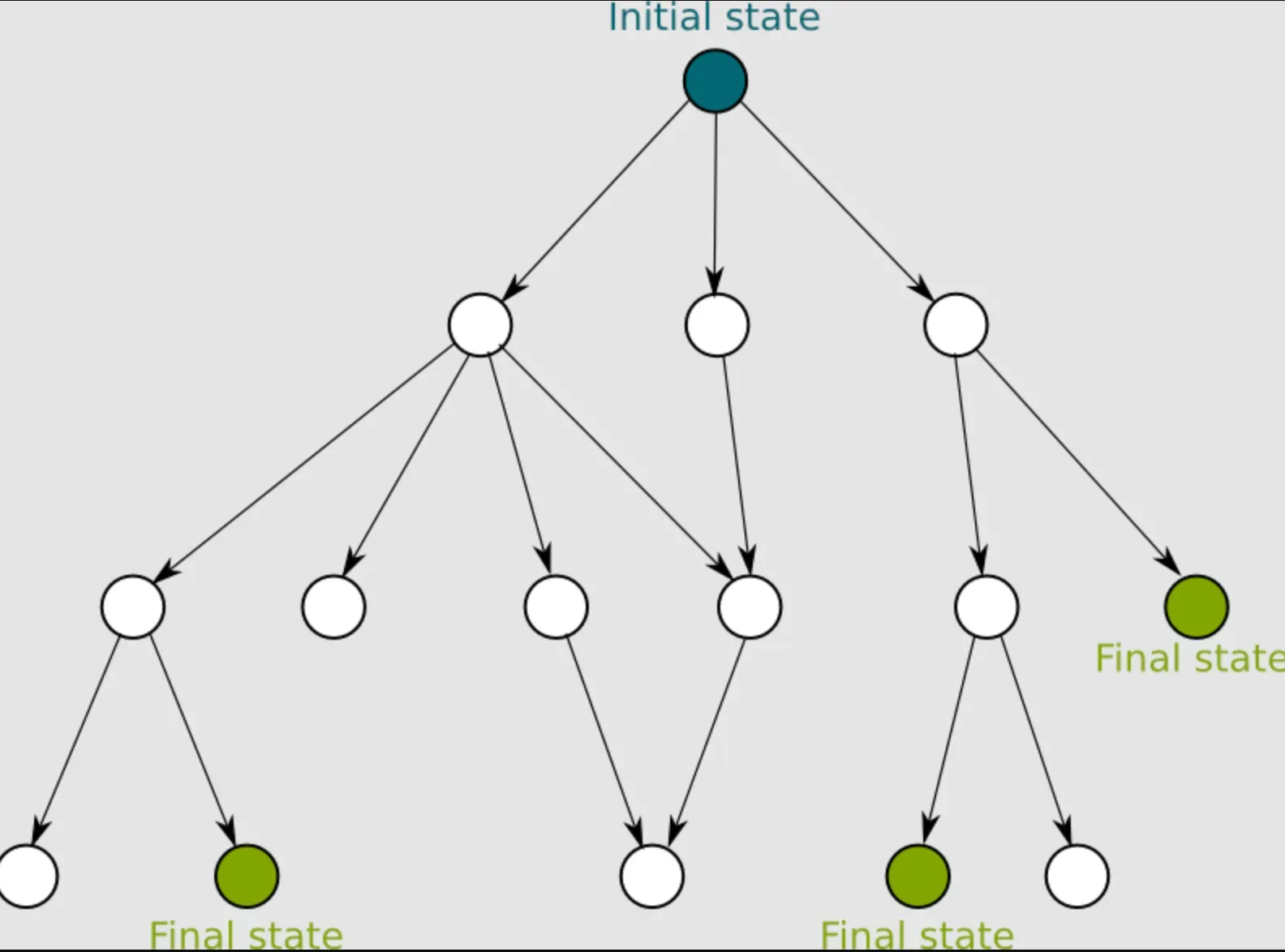
Non-deterministic algorithms find applications in diverse fields, including computer science, data analysis, artificial intelligence, cryptography, and operations research.
They are particularly useful in optimization problems, network routing, machine learning, and Monte Carlo simulations, where exploring a wide range of possible solutions is necessary.
When are Non-Deterministic Algorithms Used?
Non-deterministic algorithms are used when there is a need to find solutions for complex problems that do not have deterministic or "best" solutions.
For scenarios where exploring a variety of outputs is helpful or where the problem has a large solution space, a non-deterministic algorithm can be the method of choice.
Why are Non-Deterministic Algorithms Important?
Non-deterministic algorithms play a vital role in solving complex computational problems. Their key strength lies in their ability to explore a wide solution space by introducing randomness instead of strictly following a single path to a specific solution.
This makes them ideal for complex systems where there are too many variables or potential solutions for deterministic algorithms to effectively handle.
Understanding Deterministic and Non-deterministic Algorithms
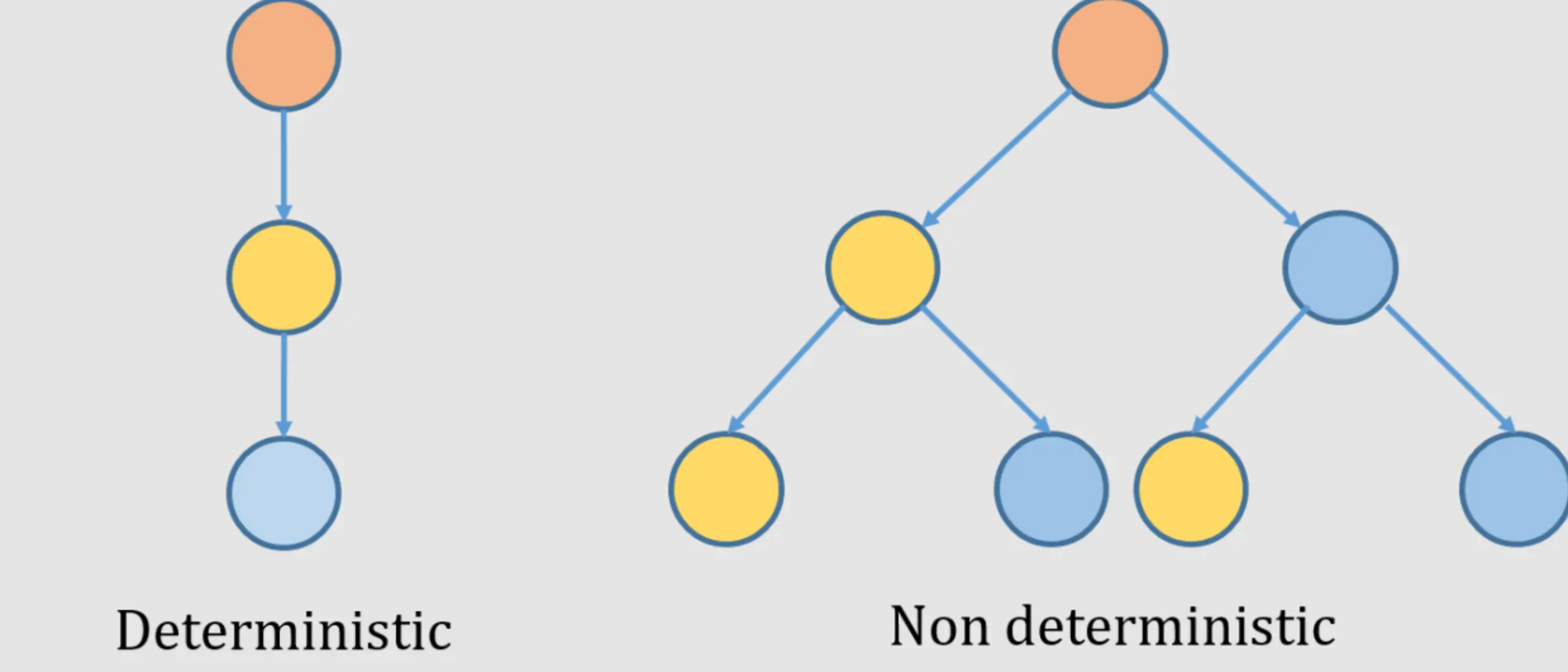
In this section, we will explore the difference between deterministic and non-deterministic algorithms.
Determinism: Predictable vs Variable
Deterministic algorithms are like a trustworthy, old friend. Feed them the same information, and they'll consistently dish out the same response. Think of them as reliable pillars amidst a sea of data and complexity.
Contrastingly, Non-deterministic algorithms are more like a surprise party. They might display varied behaviors even when given the same data.
They dance to the tunes of possibility and approximation, delivering multiple potential solutions or paths, even for identical input!
Output: Definitive vs Diverse
While deterministic algorithms always deliver a single, specific output for each input, their non-deterministic counterparts love mixing things up.
Given the same input, they could produce different outputs across multiple runs, spinning a rich tapestry of potential solutions rather than opting for a straightforward, singular approach.
Execution: Planned vs Spontaneous
Deterministic algorithms are the strategists of the computing world. They follow a predefined sequence of steps to solve a problem, predictably determining the next move based on the current state.
Non-deterministic algorithms, however, are more exploratory and spontaneous. Stringent rules don't tether them and instead, juggle multiple paths at once, embracing a philosophy of parallel exploration.
Efficiency: Quick vs Deliberate
Typically, deterministic algorithms are sprinters. They're efficient, wrapping up tasks speedily, solving problems in polynomial time.
The non-deterministic algorithms often lag behind in this context, resolving problems using exponentially more time. But they offer unparalleled versatility in combing through possibilities and conjuring approximations.
Application: Precise vs Transformative
Deterministic algorithms are the logical choice when you're seeking precise and predictable outcomes, like mathematical computations or sorting data.
Non-deterministic algorithms shine when we're navigating complex problems in areas like AI, optimization, or gaming. In these spaces, their ability to deliver multiple or approximate solutions can be game-changing.
Non-deterministic Algorithms in Action
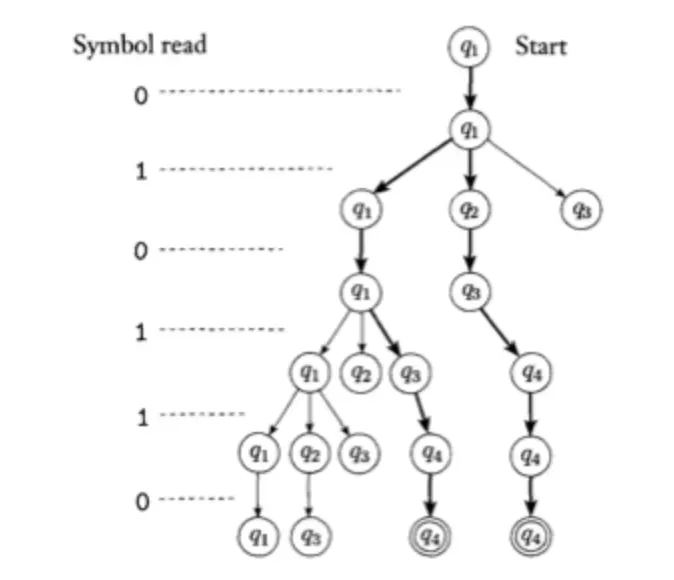
The Traveling Salesman Problem (TSP) is one of the most intriguing puzzles in the computational universe.
At its core, we are trying to find the shortest possible route that a salesman could take to visit a set number of cities and then return to the origin city. With non-deterministic algorithms, we can search for approximations of the shortest path.
The advantage of using non-deterministic algorithms in solving TSP is the exploration of multiple routes simultaneously, which can lead to beneficial outcomes when exact computations are prohibitively expensive or time-consuming.
Non-deterministic Algorithms and the Knapsack Problem
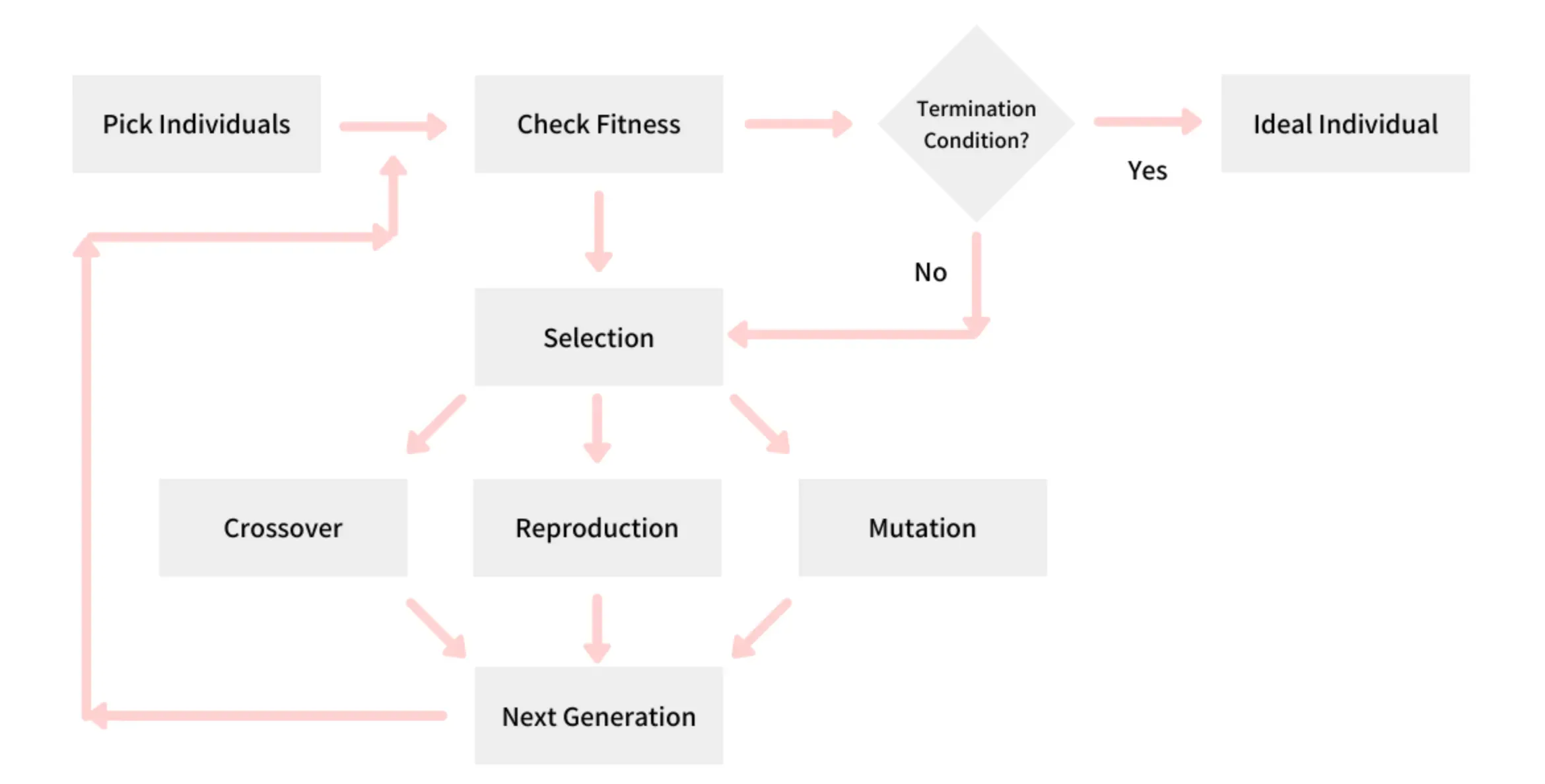
The Knapsack problem revolves around a simple question; how can we pack the most valuable combination of items with a limited weight capacity?
It's like preparing for a journey with a small suitcase and a plethora of items of varying importance to you.
Non-deterministic algorithms, with their power of parallel exploration and approximate solutions, can be of immense help here.
They can simultaneously check different combinations of items to optimize the total value within the weight constraint, in essence evolving into a virtual personal shopper to help you pack your bag most efficiently!
Non-Deterministic Algorithms: Not Without Challenges
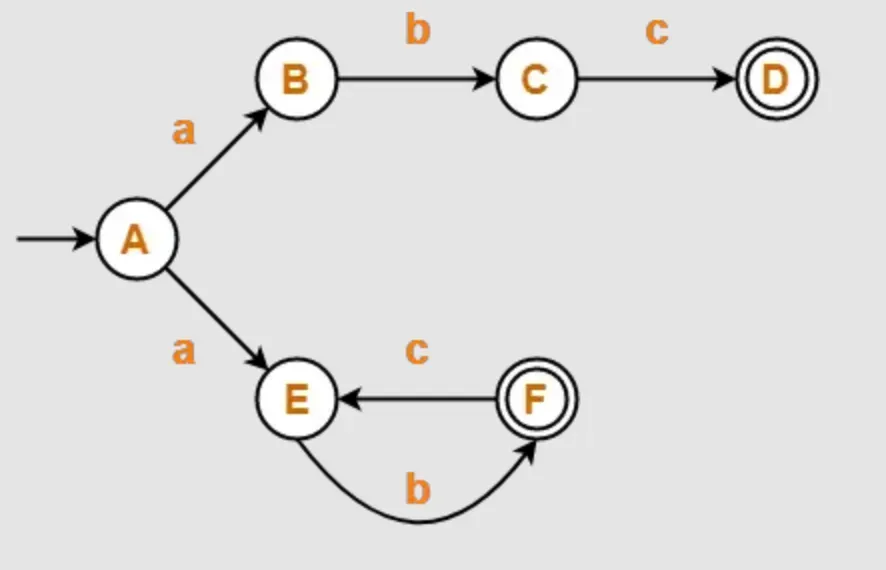
While non-deterministic algorithms open up new avenues of problem-solving, they present a fresh set of challenges. One significant stumbling block is analyzing their complexity.
Due to their unpredictability and the myriad outcomes they produce, understanding their efficiency, time, and space requirements often becomes a grueling task.
This is akin to trying to predict the trajectory of every leaf in a hurricane - complicated and not straightforward!
The Scaling Dilemma
Scaling up non-deterministic algorithms can also feel like wrestling a giant.
As they tend to explore multiple paths in parallel, this leads to an exponential increase in the resources (memory and computation time) needed as the problem size increases. This makes scaling them for larger problems quite a challenging endeavor.
The Future of Non-Deterministic Algorithms
The realm of quantum computing breathes fresh life into non-deterministic algorithms.
By leveraging quantum mechanics principles, non-deterministic algorithms in quantum computing have shown the potential to solve complex problems much faster than conventional algorithms.
The continuous research to enhance their efficiency and accuracy is shifting the paradigm of computational science.
Fostering Growth in Machine Learning & AI
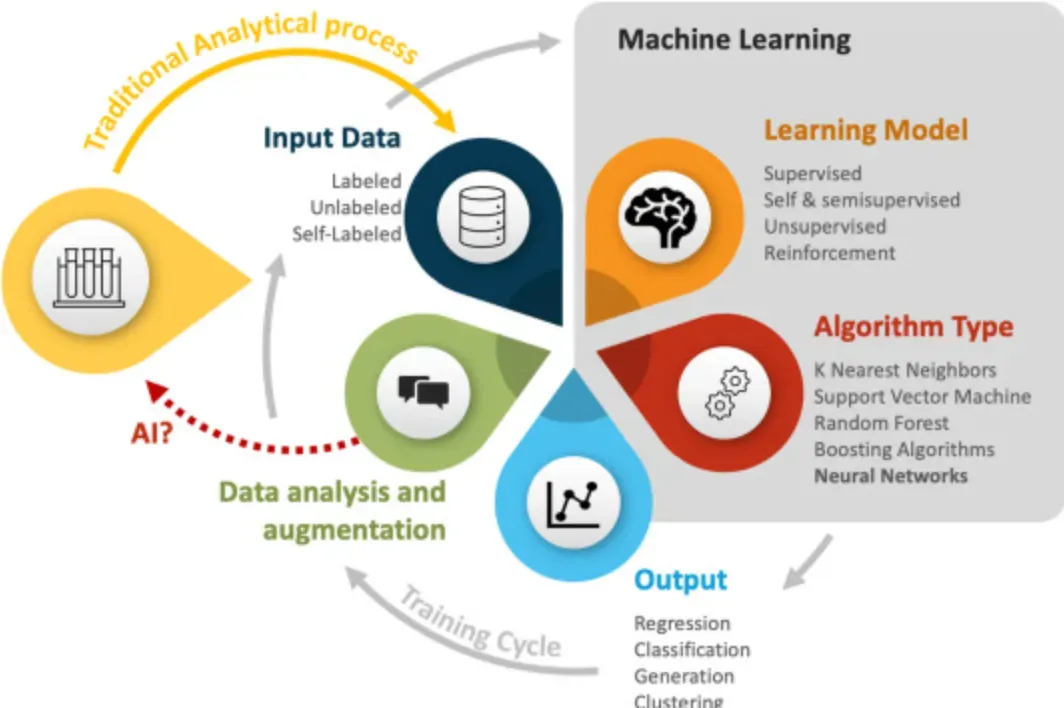
In the vibrant space of machine learning and artificial intelligence, non-deterministic approaches like evolutionary algorithms and reinforcement learning are giving birth to more adaptive and robust AI models.
The element of randomness introduced by these algorithms helps circumnavigate local optima and improves system performance, leading to more effective AI systems.
Advancing Complexity Analysis
While analyzing the efficiency of non-deterministic algorithms is a significant challenge, it isn't untouched by innovation.
Researchers are devising newer techniques to better understand the complexity and runtime behavior of these algorithms.
By developing more accurate ways to estimate resource requirements, the goal is to improve the predictability of non-deterministic algorithms.
Revamping Approximation Algorithms
Non-deterministic algorithms are routinely used for finding approximate solutions to challenging optimization problems.
The current trend is towards creating more efficient approximation algorithms that offer not just better practical performance but also stronger theoretical guarantees.
This wave of research makes non-deterministic algorithms an exciting field brimming with potential!
Frequently Asked Questions (FAQs)
Can non-deterministic algorithms guarantee an optimal solution?
Non-deterministic algorithms cannot guarantee an optimal solution in every case.
While they may find good solutions, the randomness involved means there is no assurance of finding the absolute best solution.
How do parallel and distributed computing affect non-deterministic algorithms?
Parallel and distributed computing can significantly enhance the performance of non-deterministic algorithms by leveraging multiple processors or distributed systems.
This can lead to faster computation times and improved scalability.
Do non-deterministic algorithms have any advantages over deterministic algorithms?
Non-deterministic algorithms offer advantages such as the ability to explore multiple solutions, adaptability to changing environments, and finding approximate solutions.
These properties make them suitable for solving complex problems where deterministic algorithms may struggle.
Are non-deterministic algorithms used in evolutionary computation?
Yes, evolutionary computation includes non-deterministic algorithms like genetic algorithms, genetic programming, and evolutionary strategies.
These algorithms mimic the process of natural evolution to solve optimization and search problems.
How are non-deterministic algorithms used in quantum computing?
Non-deterministic algorithms play a vital role in quantum computing, as they take advantage of quantum phenomena like superposition and entanglement.
Algorithms like Grover's search and Shor's factoring algorithm demonstrate the power of non-deterministic approaches in quantum computing.
